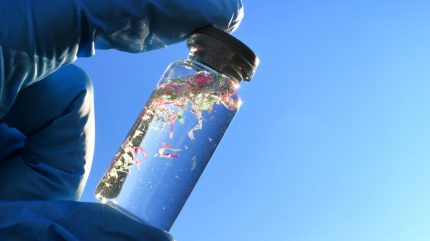
A team of researchers in South Korea has developed a bio-catalyst capable of breaking down PET plastic with unprecedented efficiency.
Led by Professor Kim Kyung-jin of Kyungpook National University and supported by CJ CheilJedang, the study was published on 3 January in the journal Science.

Discover B2B Marketing That Performs
Combine business intelligence and editorial excellence to reach engaged professionals across 36 leading media platforms.
Addressing the challenges of PET recycling
PET plastic is commonly used in bottles, clothing, and packaging materials. Conventional recycling methods involve mechanical processing, such as crushing and reprocessing, which often degrades the material’s quality.
As a result, a significant portion of PET waste ends up in landfills or incinerators. Chemical catalysts have been explored as an alternative, but they present drawbacks, including contamination and waste generation.
A more efficient breakdown process
To overcome these issues, the research team developed a bio-catalyst named “KUBU-M12.” Unlike chemical methods, bio-catalysts break down plastics through biological reactions, reducing waste and preserving material quality.
The study demonstrated that KUBU-M12 could break down 1 kilogram of PET by 45% within an hour, over 90% in eight hours, and nearly completely in 12 hours using just 0.58 grams of the catalyst.

US Tariffs are shifting - will you react or anticipate?
Don’t let policy changes catch you off guard. Stay proactive with real-time data and expert analysis.
By GlobalDataResearchers report that this is the highest efficiency recorded for a bio-catalyst in plastic decomposition.
Potential impact on recycling and sustainability
Professor Kim described the technology as a major advancement, stating that it allows for the permanent recycling of even contaminated PET plastics. The development of KUBU-M12 could significantly improve recycling efficiency while reducing environmental impact.
It may also have broader applications in the chemical industry. With growing global concerns over plastic waste and climate change, such innovations could play a crucial role in sustainability efforts.
The findings highlight a step forward in bio-based solutions for plastic waste management, offering a potential alternative to conventional recycling and disposal methods.
The research’s publication in Science underscores its significance in the field of biotechnology and environmental science.



